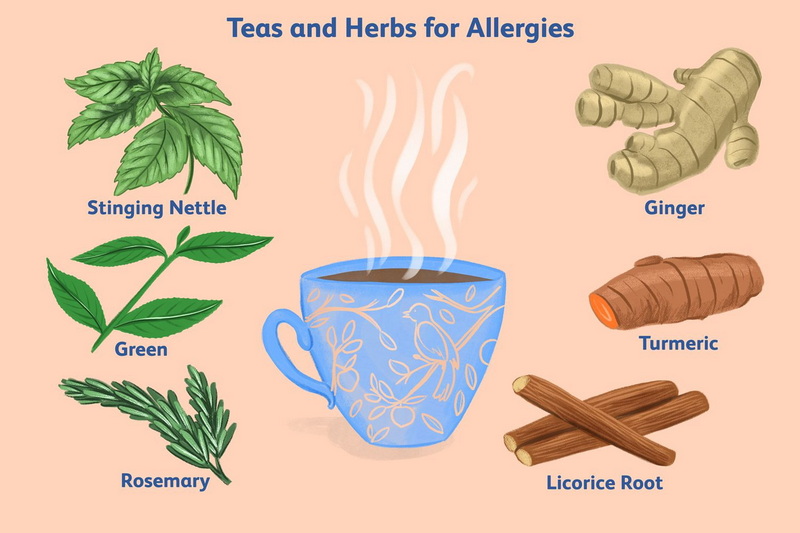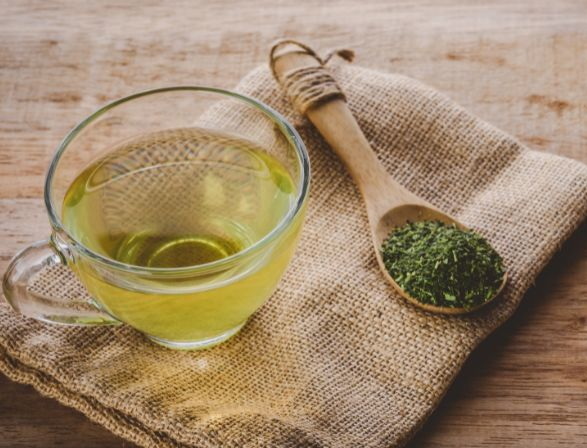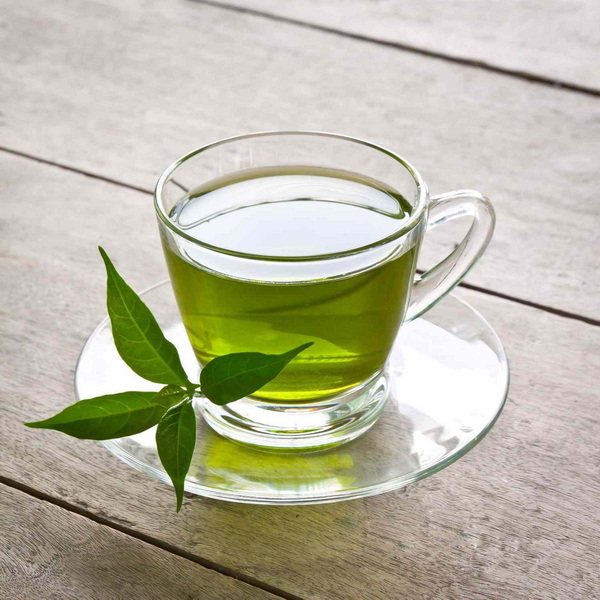Content Menu
● Understanding Green Tea Extract
>> Common Components of Green Tea Extract
● Symptoms of Green Tea Allergy
● Case Studies and Reports
● Risk Factors for Green Tea Allergy
● Diagnosis and Testing
● Management Strategies
● Alternatives to Green Tea
● The Role of Green Tea in Skin Care
● Potential Risks of High-Dose Green Tea Extracts
● Expanded Content on Symptoms
>> Detailed Symptoms Breakdown
● Expanded Content on Case Studies
● Expanded Content on Diagnosis Techniques
>> Advanced Diagnostic Techniques
● Expanded Content on Management Strategies
>> Comprehensive Management Plan
● Conclusion
● FAQ
>> 1. Can you be allergic to all types of tea?
>> 2. What should I do if I experience symptoms after consuming green tea?
>> 3. Are there any tests available for diagnosing a green tea allergy?
>> 4. Can I consume matcha if I am allergic to regular green tea?
>> 5. What are some safe alternatives if I am allergic to green tea?
● Citations:
Green tea, derived from the leaves of the Camellia sinensis plant, has gained immense popularity due to its numerous health benefits, including antioxidant properties and potential weight loss effects. However, despite its advantages, some individuals may experience allergic reactions to green tea extract. This article explores the nature of these allergies, their symptoms, potential causes, and management strategies.

Understanding Green Tea Extract
Green tea extract is concentrated from green tea leaves and is often used in dietary supplements and skincare products. It contains various bioactive compounds, including catechins, caffeine, and tannins. While many people consume green tea without issues, certain components can trigger allergic reactions in susceptible individuals.
Common Components of Green Tea Extract
- Catechins: These are a type of antioxidant found in high concentrations in green tea. Epigallocatechin gallate (EGCG) is one of the most studied catechins.
- Caffeine: A natural stimulant that can cause adverse reactions in sensitive individuals.
- Tannins: Polyphenolic compounds that can affect digestion and may contribute to allergic responses.
Symptoms of Green Tea Allergy
Allergic reactions to green tea can manifest in various ways. Some common symptoms include:
- Respiratory Issues: Nasal congestion, sneezing, or asthma-like symptoms may occur.
- Skin Reactions: Hives, rashes, or itching can develop after exposure to green tea extract.
- Gastrointestinal Distress: Symptoms such as nausea, diarrhea, or stomach pain may arise following ingestion.
- Anaphylaxis: In rare cases, individuals may experience severe allergic reactions leading to anaphylaxis, which requires immediate medical attention.
Case Studies and Reports
Several studies have documented instances of allergic reactions to green tea. For example:
1. A study involving workers at a Japanese green tea factory revealed that some developed respiratory allergies due to inhaling green tea dust. Symptoms included asthma and nasal allergies linked primarily to EGCG exposure.
2. Another report highlighted a pediatric patient who experienced anaphylaxis after consuming matcha-flavored ice cream. The reaction was confirmed through oral food challenges.
3. A case study described a young woman who developed respiratory symptoms after drinking green tea she had previously tolerated without issues.
These cases illustrate that while many enjoy green tea without problems, others may face significant health risks.
Risk Factors for Green Tea Allergy
Certain factors may increase the likelihood of developing an allergy to green tea extract:
- Genetic Predisposition: Individuals with a family history of allergies may be more susceptible.
- Occupational Exposure: Workers in environments where green tea is processed may develop sensitivities due to prolonged exposure.
- Cross-Reactivity: Those allergic to other substances (e.g., certain pollens or foods) might also react to components in green tea.
Diagnosis and Testing
Diagnosing a green tea allergy typically involves:
- Medical History Review: A detailed account of symptoms and exposure history is crucial.
- Skin Prick Tests: These tests can help identify specific allergens by observing reactions to diluted extracts.
- Oral Food Challenges: Under medical supervision, patients may consume small amounts of green tea to confirm an allergy.

Management Strategies
For those diagnosed with a green tea allergy, management strategies include:
- Avoidance: The most effective way to prevent allergic reactions is to eliminate all forms of green tea from the diet and skincare products.
- Medication: Antihistamines can help alleviate mild symptoms. In cases of severe allergies or anaphylaxis, carrying an EpiPen for emergency use is advisable.
- Consultation with Healthcare Providers: Regular check-ups with allergists can help manage symptoms and provide guidance on safe alternatives.
Alternatives to Green Tea
Individuals with a sensitivity or allergy to green tea can explore various alternatives that do not contain caffeine or tannins:
- Herbal Teas: Options like chamomile or peppermint are naturally caffeine-free and less likely to cause allergic reactions.
- Fruit Infusions: Beverages made from fruits like hibiscus or berry blends provide flavor without the risk associated with traditional teas.
The Role of Green Tea in Skin Care
Interestingly, while some individuals may experience allergic reactions when consuming green tea extract, it has been studied for its potential benefits in topical applications. Research indicates that green tea extracts might have anti-inflammatory properties that can help manage skin conditions like allergic contact dermatitis.
In a pilot study involving volunteers with moderate allergic dermatitis, participants showed marked improvement after using topical applications of green tea extracts over two weeks. The study concluded that while it might not be strong enough for severe reactions, it could be beneficial for mild cases without causing skin irritation[1].
Potential Risks of High-Dose Green Tea Extracts
While moderate consumption of green tea is generally safe for most people, high doses of concentrated extracts can pose risks. Some studies indicate that excessive intake may lead to liver damage or other adverse effects[5]. Therefore, individuals should approach supplements containing high concentrations of green tea extract with caution and consult healthcare professionals before use.
Expanded Content on Symptoms
The symptoms associated with a green tea allergy can vary widely among individuals due to differences in immune response mechanisms.
Detailed Symptoms Breakdown
- Respiratory Issues: Allergic rhinitis (hay fever) can present as sneezing fits triggered by inhaling particles containing allergens from processed teas or dust during preparation. Asthma exacerbations might occur in sensitive individuals upon exposure through inhalation or ingestion.
- Skin Reactions: Contact dermatitis could arise not only from drinking but also from topical applications containing green tea extracts. Symptoms can include localized redness (erythema), swelling (edema), blistering in severe cases, and intense itching (pruritus).
- Gastrointestinal Distress: Ingesting even small amounts of allergenic substances found in teas could lead to gastrointestinal upset characterized by abdominal cramps and vomiting alongside diarrhea due to inflammation caused by the immune response against proteins present in the extract.
Expanded Content on Case Studies
Further exploration into case studies provides deeper insights into how allergies manifest across different demographics:
1. A longitudinal study involving factory workers revealed that prolonged exposure led not only to respiratory issues but also increased instances of skin allergies due to handling dry leaves without adequate protective measures.
2. In another case study involving children who frequently consumed matcha products—such as ice cream—anaphylactic responses were noted even when they had previously tolerated such foods without incident; this highlights the unpredictable nature of food allergies where sensitization occurs over time rather than immediately upon first exposure[4].
3. Another significant finding was reported regarding adults who developed sensitivities later in life despite having consumed various forms of teas during their youth without any adverse effects[9].
These findings emphasize the importance of monitoring changes in health status concerning dietary habits over time as new allergens can emerge based on cumulative exposure levels.
Expanded Content on Diagnosis Techniques
Diagnosing food allergies like those related specifically to components within teas requires comprehensive testing protocols which include:
Advanced Diagnostic Techniques
- Specific IgE Testing: This blood test measures the presence of IgE antibodies specific for allergens found within different types of teas which could indicate sensitization even before clinical symptoms manifest.
- Component Resolved Diagnostics (CRD): This advanced testing method allows allergists to identify specific proteins within complex mixtures like those found in various teas—providing clarity on whether an individual reacts primarily due to caffeine content versus other proteins present in the leaf material itself[8].
Expanded Content on Management Strategies
For managing a diagnosed allergy effectively:
Comprehensive Management Plan
- Dietary Adjustments: It's crucial for affected individuals not only avoid direct consumption but also read labels carefully on packaged foods where cross-contamination could occur during processing—particularly with products containing matcha powder.
- Emergency Action Plans: Patients should have clear protocols established regarding what steps need taking if accidental ingestion occurs—this includes carrying emergency medications such as antihistamines or epinephrine auto-injectors at all times when outside their homes[2].
Conclusion
While green tea extract offers numerous health benefits for many people, it is essential to recognize that some individuals may experience allergic reactions. Symptoms can range from mild skin irritations to severe anaphylactic responses. If you suspect an allergy to green tea or its extracts, consult a healthcare professional for proper diagnosis and management strategies. Awareness and avoidance are key in preventing adverse reactions while still enjoying the vast world of beverages available today.
In conclusion, while many enjoy the myriad benefits offered by consuming various forms of *Camellia sinensis*, awareness surrounding potential allergic responses must remain at the forefront—especially given how easily these sensitivities can develop over time without prior warning signs appearing initially during consumption periods earlier on in life cycles[6].

FAQ
1. Can you be allergic to all types of tea?
Yes, individuals can be allergic to various types of tea made from the *Camellia sinensis* plant, including black and oolong teas since they share similar components that may trigger allergies.
2. What should I do if I experience symptoms after consuming green tea?
If you experience symptoms such as hives or difficulty breathing after consuming green tea, seek medical attention immediately. For mild symptoms, antihistamines may help alleviate discomfort.
3. Are there any tests available for diagnosing a green tea allergy?
Yes, skin prick tests and oral food challenges conducted by healthcare professionals can help diagnose a green tea allergy effectively.
4. Can I consume matcha if I am allergic to regular green tea?
No; if you are allergic to regular green tea, it is advisable to avoid matcha as well since it is derived from the same plant and contains similar allergens.
5. What are some safe alternatives if I am allergic to green tea?
Safe alternatives include herbal teas like chamomile or peppermint and fruit infusions that do not contain caffeine or tannins.
Citations:
[1] https://pmc.ncbi.nlm.nih.gov/articles/PMC3834413/
[2] https://familymedicineaustin.com/green-tea-allergy-and-its-symptoms/
[3] https://www.livestrong.com/article/295307-green-tea-allergy-symptoms/
[4] https://www.jiaci.org/revistas/vol28issue5_11.pdf
[5] https://www.youtube.com/watch?v=A7tjlpYdUGU
[6] https://www.jacionline.org/article/S0091-6749(03)01885-2/fulltext
[7] https://www.aaaai.org/allergist-resources/ask-the-expert/answers/2021/tea-allergy
[8] https://www.myjapanesegreentea.com/green-tea-allergy
[9] https://www.jstage.jst.go.jp/article/allergolint/70/4/70_507/_pdf

 English
English 




























